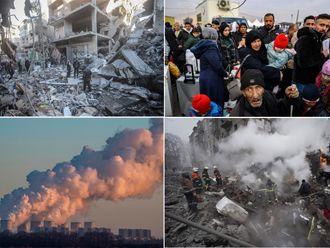An invisible restraining order is sent out and passed down from some expatriates to fellow expatriates, who have possibly just moved to the country. Stay away from them; they don’t like to be talked to… the Emiratis. So we go on being shunned by a number of people who far exceed our number for the next dozen generations and if there comes a time when we have to communicate, an exchange of fearful, very awkward glances are in order.
Ironically, Emiratis are people known for their hospitality and praised for it throughout history, but somehow fall short of portraying that to certain groups. A series of misconceived perceptions caused an immense gap between both groups and an invisible segregating line was established and that is not a sustainable solution for social growth.
While some expatriates blend well with Emiratis, many spend years in the UAE without interacting with a single Emirati. They live within their own communities in newly developed areas of the city, attending different schools, universities, and workplaces and don’t feel the need to learn about the culture or even some of the language’s basics . Many have never even tried a single Emirati dish.
I’ve watched a YouTube video created by students in one of the private universities in Dubai in which other students are asked some basic questions about the UAE, of the capital or the colours of the flag and they did not know the answers. Ironically, on one of my recent holidays in the Seychelles, the driver there knew more about the UAE.
The UAE is a very accommodating country, one that gives its residents a lot of the freedoms that neighbouring countries don’t. However, many of these residents, due to ignorance or in some cases being over comfortable, fail to respect its culture and religion. The lack of interest in learning about a country’s people and culture encourages the behaviour of not respecting it, which emphasises the importance of communication between both groups.
While it is unrealistic to deny that many Emiratis are socially reserved, this is just a reaction. We suddenly found ourselves sharing space with more than 200 nationalities and it only pushed us away to the comfort of our familiar circles and ways.
Along the way when we found ourselves in situations where expatriates are treated better by cashiers or waiters and when Emiratis were not taken seriously and were merely used to fill a quota in the private sector is when the social reservation was developed into a sense of hostility due to being treated like the outsiders by the outsiders themselves.
Adaptability
That is when we assumed we are conspired against in every situation, be it intentional or unintentional. That is, however, a premature reaction and not an excuse, because no force will bring us forward like the force of adaptability that I believe, is achievable with time and joint effort.
The Emirati community is one that is composed of many different groups; while some are approachable others aren’t — just like any other community. If you were stranded somewhere and needed direction or were left with a flat tyre in the middle of the road, an Emirati man would be the first to offer his help. Many great initiatives have been developed to educate expatriates and tourists about Emirati culture. For instance, Ali Al Saloom from Ask Ali created different platforms to raise awareness about the UAE in all its aspects, as well as many other publications have been printed for the purpose. However, more efforts need to be made by the Emiratis themselves.
We all need to be the ‘Ask Ali’s’ and the ambassadors of what we represent. We need to be approachable and friendly, while expatriates need to make an effort to reach out and learn because there is no ignorance worse than self-chosen ignorance, especially one that is associated with making judgments based on stereotypes.
We can no longer go on separating the two groups because we are bound to face each other. So why not allow growth and make it a healthy cultural exchange?
Fatma Al Falasi is a young Emirati writer who reflects on social issues that relate to Emirati youth. You can follow her at www.twitter.com/Fatmalfalasi



_resources1_16a45059ca3_small.jpg)




